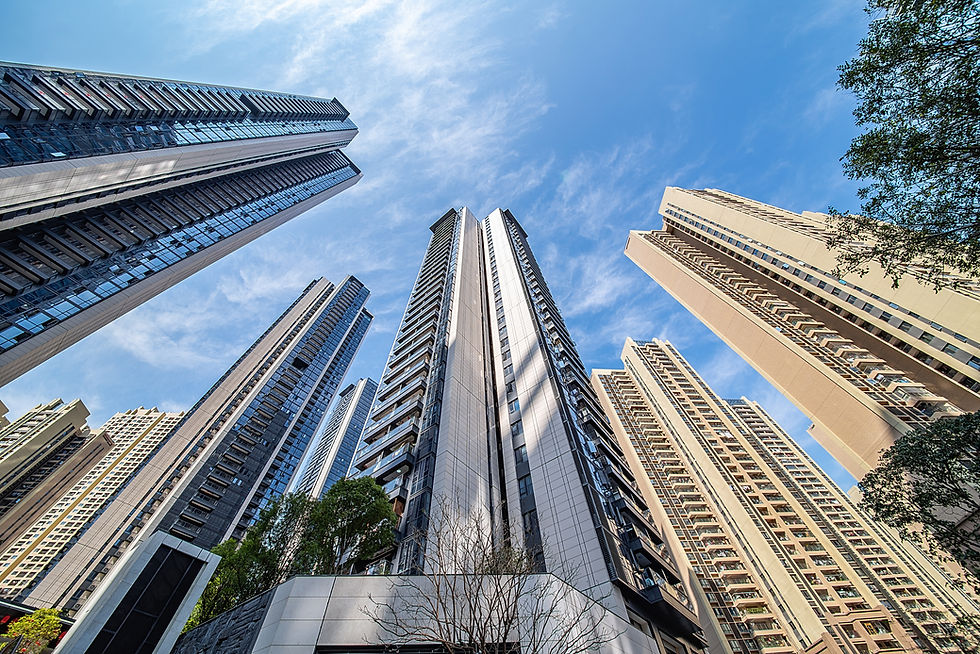What You Need to Know About Build-to-Suit Properties: A Tenant’s Guide
- marketing08413
- May 14, 2025
- 3 min read
When you're looking for the perfect commercial space for your business, you may come across the term build-to-suit. While it sounds straightforward, build-to-suit properties are custom-designed spaces that require more understanding before diving in. Whether you're planning to lease or invest in one, here’s everything you need to know about how it works and how it benefits tenants.
What is a Build-to-Suit Property?
A build-to-suit property is a commercial space constructed specifically for a tenant’s needs. Unlike leasing an existing building, where you’ll have to adapt your business to the existing layout, a build-to-suit allows you to have direct influence over the building’s design and functionality.
Think of it as a “custom fit” for your business. Whether you need extra high ceilings for a gym or specialized plumbing for a restaurant, the property is tailored to optimize your operations.
How Does It Work for Tenants?
For tenants, the process of leasing a build-to-suit property involves a few key steps, and it’s important to understand the ins and outs before committing:
1. The Tenant's Requirements
Before any construction begins, tenants work with the landlord and architect to outline their specific needs. This can include:
Layout preferences (open space vs. private offices)
Specific utilities and infrastructure (e.g., HVAC, plumbing)
Accessibility features
Branding and design elements (e.g., signage and color schemes)
2. The Lease Agreement & Construction Costs
In most cases, the landlord covers the construction costs but will likely require a longer lease term (often 10 to 20 years) to recoup their investment. The tenant may be required to sign a lease that lasts as long as the construction and design period.
Lease terms typically include:
Tenant improvement (TI) allowances: Some landlords offer financial help to cover customizations.
Triple net (NNN) leases: Many build-to-suit leases include triple-net clauses, meaning tenants are responsible for property taxes, insurance, and maintenance.
3. Construction Timeline
Building a property specifically for one tenant can take anywhere from 12 to 24 months, depending on the size and complexity. During this time, tenants are often involved in overseeing design approvals, but the landlord usually manages the project.
4. Ownership vs. Leasing
In a build-to-suit arrangement, tenants typically lease the space from the landlord rather than buying it. However, some tenants may negotiate an option to purchase the property once the lease term ends.
What Are the Benefits for Tenants?
Customization: The biggest advantage for tenants is the ability to create a space that suits their unique needs. This is especially valuable for businesses with specialized operations, like a medical office, restaurant, or fitness center, where the building needs to support the business model.
Long-Term Cost Savings: Though the upfront costs can be higher, a build-to-suit space can lead to cost savings in the long run by having a more efficient layout and avoiding expensive renovations in the future.
Predictable Lease Terms: Since the space is custom-built for your business, you avoid the typical issues of adapting to an existing property. You also get certainty in knowing the space is specifically designed for your needs.
Control Over Location: In some cases, tenants may have more say in location choice, which can be key if you’re looking for specific visibility or accessibility. If you’re opening a retail business or a restaurant, this can make a huge difference in customer experience.
What Are the Potential Drawbacks?
Higher Costs: Custom design and construction often come with higher upfront costs.
Longer Commitment: Build-to-suit leases typically require a longer lease term, which may be restrictive for businesses with uncertain growth plans.
Construction Delays: The timeline for completion can extend due to unforeseen challenges, such as permits or zoning approvals, which might delay your opening date.
For businesses with unique space needs or those looking to build a long-term home, build-to-suit properties are a great solution. Whether you’re in retail, healthcare, or industrial sectors, this option provides the flexibility and control over your space that’s hard to achieve in traditional leases.
If you're considering a build-to-suit option for your business, it’s always best to consult with a commercial broker to guide you through the process. We are here to help you understand the complexities of these arrangements and find the perfect property for your business!
Written by LevRose CRE with assistance from: LevRoseCRE.(2024)
ChatGPT [Open AI]. https://chat.openai.com/



